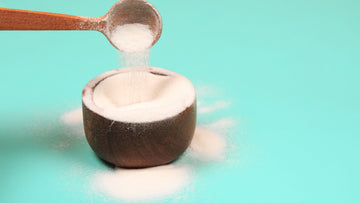
Heart disease remains the leading cause of death worldwide, claiming millions of lives each year. Despite advancements in medical research and technology, cardiovascular diseases continue to pose significant health risks across the globe. Understanding the factors that contribute to heart disease and how lifestyle choices, including coffee and caffeine consumption, can impact heart health is crucial for prevention and management.
The Global Burden of Heart Disease
Heart disease encompasses a range of cardiovascular conditions, including coronary artery disease, heart failure, arrhythmias, and hypertension. According to the World Health Organization (WHO), cardiovascular diseases account for approximately 17.9 million deaths annually, representing 31% of all global deaths . The primary causes of heart disease include unhealthy diets, lack of physical activity, tobacco use, and excessive alcohol consumption. However, underlying factors such as genetics, age, and pre-existing health conditions also play a significant role.
Lifestyle Choices and Heart Health
The rise in heart disease can be attributed to various lifestyle choices that have become prevalent in modern society. Poor dietary habits, characterized by high intake of saturated fats, trans fats, and sugars, contribute to obesity, hypertension, and high cholesterol levels, all of which are major risk factors for heart disease. Additionally, sedentary lifestyles, often associated with prolonged periods of sitting and minimal physical activity, further exacerbate the risk.
Tobacco use and excessive alcohol consumption are well-established risk factors for heart disease. Smoking damages the lining of the arteries, leading to atherosclerosis, while alcohol can raise blood pressure and contribute to the development of cardiomyopathy .
The Impact of Coffee and Caffeine on Heart Health
Coffee is one of the most widely consumed beverages globally, with millions of people relying on it for their daily dose of caffeine. While moderate coffee consumption has been associated with certain health benefits, including a reduced risk of Parkinson's disease and some types of cancer , its impact on heart health is more complex, particularly for individuals with pre-existing heart conditions.
Caffeine and Its Effects on the Heart
Caffeine is a natural stimulant found in coffee, tea, chocolate, and various energy drinks. It works by blocking the action of adenosine, a neurotransmitter that promotes relaxation and sleep. By doing so, caffeine increases the release of adrenaline, leading to heightened alertness, increased heart rate, and elevated blood pressure.
For most healthy individuals, moderate caffeine consumption is considered safe and may even have protective effects against certain cardiovascular conditions. However, excessive caffeine intake can lead to several adverse effects on heart health, particularly for those with pre-existing heart conditions.
Increased Heart Rate and Blood Pressure
One of the most immediate effects of caffeine consumption is an increase in heart rate. While this may be harmless for most people, individuals with heart conditions such as arrhythmias or tachycardia may experience exacerbation of their symptoms. A study published in the Journal of the American College of Cardiology found that caffeine can induce or worsen arrhythmias in sensitive individuals .
Moreover, caffeine has been shown to cause a temporary increase in blood pressure, especially in individuals who are not regular consumers. This effect is more pronounced in people with hypertension, as their blood pressure levels may spike significantly after consuming caffeinated beverages .
Potential for Arrhythmias
Arrhythmias are irregular heartbeats that can range from harmless to life-threatening. While moderate caffeine consumption is generally safe for most people, those with a history of arrhythmias may be at increased risk. A study published in the European Journal of Preventive Cardiology found that high caffeine intake was associated with an increased risk of atrial fibrillation, a common type of arrhythmia, in individuals with a genetic predisposition to the condition .
Impact on Cholesterol Levels
The way coffee is prepared can also influence its impact on heart health. Unfiltered coffee, such as French press or espresso, contains higher levels of cafestol and kahweol, compounds that have been shown to raise LDL (low-density lipoprotein) cholesterol levels. Elevated LDL cholesterol is a well-known risk factor for atherosclerosis, a condition in which fatty deposits build up in the arteries, increasing the risk of heart attack and stroke .
The Role of Decaffeinated Coffee
For individuals who need to limit their caffeine intake due to heart conditions, decaffeinated coffee may seem like a suitable alternative. However, it's important to note that decaffeinated coffee is not entirely caffeine-free. While it contains significantly less caffeine than regular coffee, even small amounts of caffeine can trigger adverse effects in sensitive individuals.
Furthermore, some decaffeination processes involve the use of chemical solvents, such as methylene chloride, which have raised health concerns. A recent article by CNN highlighted the potential risks associated with methylene chloride, a known carcinogen used in some decaffeination methods .
Who Should Avoid Coffee and Caffeine?
While moderate coffee consumption is generally safe for the majority of the population, certain individuals should exercise caution or avoid caffeine altogether. This includes:
-
Individuals with Arrhythmias: As mentioned earlier, caffeine can exacerbate arrhythmias in sensitive individuals. Those with a history of atrial fibrillation, tachycardia, or other irregular heartbeats should consult their healthcare provider before consuming caffeinated beverages.
-
People with Hypertension: Caffeine can cause temporary spikes in blood pressure, which may be dangerous for individuals with uncontrolled hypertension. Monitoring blood pressure levels after consuming caffeine is essential for those with high blood pressure.
-
Individuals with Heart Disease: People with pre-existing heart conditions, such as coronary artery disease or heart failure, should be cautious with caffeine intake. The stimulant effects of caffeine can increase the workload on the heart and may exacerbate symptoms.
-
Pregnant Women: Pregnant women are advised to limit their caffeine intake to reduce the risk of complications such as preeclampsia and low birth weight. The American College of Obstetricians and Gynecologists recommends limiting caffeine consumption to 200 milligrams per day during pregnancy .
-
Individuals with Anxiety Disorders: Caffeine can trigger or worsen anxiety symptoms in some individuals. Those with generalized anxiety disorder or panic disorder may find that caffeine exacerbates their symptoms.
Conclusion
Heart disease remains a leading cause of death worldwide, and lifestyle choices play a significant role in its development and progression. While coffee and caffeine can be enjoyed in moderation by many, individuals with heart conditions or other risk factors should approach caffeine consumption with caution.
Understanding the potential risks associated with caffeine, particularly its effects on heart rate, blood pressure, and arrhythmias, is essential for making informed decisions about coffee consumption. For those with pre-existing heart conditions, consulting with a healthcare provider is crucial to determine whether coffee and caffeine are safe.
Ultimately, prioritizing heart health through a balanced diet, regular exercise, and healthy lifestyle choices is the most effective way to reduce the risk of heart disease and ensure long-term well-being.
References
- World Health Organization. (2021). Cardiovascular diseases (CVDs). Retrieved from https://www.who.int/health-topics/cardiovascular-diseases
- American Heart Association. (2021). Smoking and Cardiovascular Disease. Retrieved from https://www.heart.org/en/healthy-living/healthy-lifestyle/quit-smoking-tobacco/smoking-and-cardiovascular-disease
- National Institute on Alcohol Abuse and Alcoholism. (2021). Alcohol and Heart Health. Retrieved from https://www.niaaa.nih.gov/alcohols-effects-health/alcohol-heart-health
- Harvard T.H. Chan School of Public Health. (2020). Coffee and Health. Retrieved from https://www.hsph.harvard.edu/nutritionsource/food-features/coffee/
- American College of Cardiology. (2019). Caffeine and Arrhythmias. Retrieved from https://www.acc.org/latest-in-cardiology/articles/2019/07/01/12/42/caffeine-and-arrhythmias
- Mayo Clinic. (2021). Caffeine: How much is too much? Retrieved from https://www.mayoclinic.org/healthy-lifestyle/nutrition-and-healthy-eating/in-depth/caffeine/art-20045678
- European Journal of Preventive Cardiology. (2020). Caffeine Intake and Atrial Fibrillation. Retrieved from https://journals.sagepub.com/doi/10.1177/2047487319880852
- National Institutes of Health. (2021). Cholesterol and Coffee. Retrieved from https://www.ncbi.nlm.nih.gov/pmc/articles/PMC6468759/
- CNN Health. (2021). Decaf coffee: How it’s made and is it really caffeine-free? Retrieved from [https://edition.cnn.com/2021/09/20/health/dec





